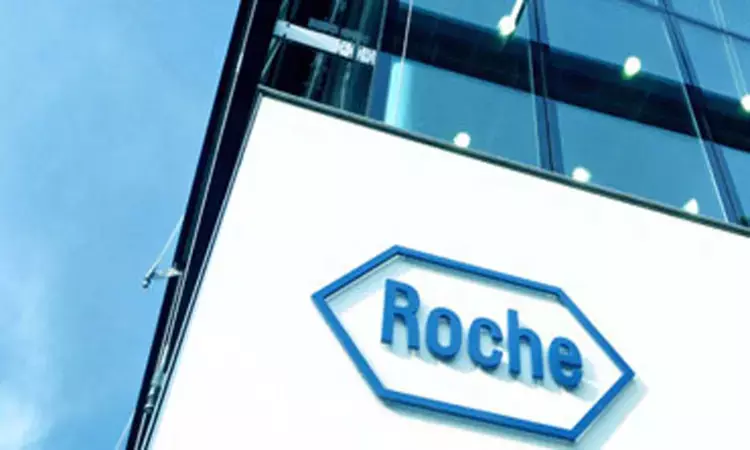- Home
- Medical news & Guidelines
- Anesthesiology
- Cardiology and CTVS
- Critical Care
- Dentistry
- Dermatology
- Diabetes and Endocrinology
- ENT
- Gastroenterology
- Medicine
- Nephrology
- Neurology
- Obstretics-Gynaecology
- Oncology
- Ophthalmology
- Orthopaedics
- Pediatrics-Neonatology
- Psychiatry
- Pulmonology
- Radiology
- Surgery
- Urology
- Laboratory Medicine
- Diet
- Nursing
- Paramedical
- Physiotherapy
- Health news
- Fact Check
- Bone Health Fact Check
- Brain Health Fact Check
- Cancer Related Fact Check
- Child Care Fact Check
- Dental and oral health fact check
- Diabetes and metabolic health fact check
- Diet and Nutrition Fact Check
- Eye and ENT Care Fact Check
- Fitness fact check
- Gut health fact check
- Heart health fact check
- Kidney health fact check
- Medical education fact check
- Men's health fact check
- Respiratory fact check
- Skin and hair care fact check
- Vaccine and Immunization fact check
- Women's health fact check
- AYUSH
- State News
- Andaman and Nicobar Islands
- Andhra Pradesh
- Arunachal Pradesh
- Assam
- Bihar
- Chandigarh
- Chattisgarh
- Dadra and Nagar Haveli
- Daman and Diu
- Delhi
- Goa
- Gujarat
- Haryana
- Himachal Pradesh
- Jammu & Kashmir
- Jharkhand
- Karnataka
- Kerala
- Ladakh
- Lakshadweep
- Madhya Pradesh
- Maharashtra
- Manipur
- Meghalaya
- Mizoram
- Nagaland
- Odisha
- Puducherry
- Punjab
- Rajasthan
- Sikkim
- Tamil Nadu
- Telangana
- Tripura
- Uttar Pradesh
- Uttrakhand
- West Bengal
- Medical Education
- Industry
Roche obtains CE mark for SARS-CoV-2 Rapid Antigen Test Nasal

Besides being less invasive, the test also provides patients with the option to self-collect their nasal sample under the supervision of a healthcare professional.
Basel: Roche has recently announced that the company has obtained the CE mark for its new SARS-CoV-2 Rapid Antigen Test Nasal.
The test will be available in countries accepting the CE mark by mid-February 2021.
In comparison to the existing Roche SARS-CoV-2 Rapid Antigen Test, the SARS-CoV-2 Rapid Antigen Test Nasal collects the sample from the front area of the nose instead of the nasopharynx, resulting in a simplified and faster testing procedure. This testing method can help reduce overall patient discomfort, particularly in sensitive individuals such as children, elderly people and/or people with disabilities.
Besides being less invasive, the test also provides patients with the option to self-collect their nasal sample under the supervision of a healthcare professional. Through reduced physical contact, this method of testing can help to decrease the risk of exposure to the virus for healthcare professionals. Whether the test could also be used without supervision of a healthcare professional will depend on local regulatory requirements.
"Rapid testing continues to play an important role in the fight against COVID-19, especially in places when laboratory testing is not available and quick results are needed, such as nursing homes, healthcare facilities, and schools." said Thomas Schinecker, CEO Roche Diagnostics. "The SARS-CoV-2 Rapid Antigen Test Nasal provides patients with a more comfortable testing experience."
The launch is a partnership with SD Biosensor Inc., with whom Roche has also launched a SARS-CoV-2 Rapid Antibody Test in July and a SARS-CoV-2 Rapid Antigen Test in September 2020. SD Biosensor, is currently preparing to submit an Emergency Use Authorisation (EUA) to the U.S. Food and Drug Administration (FDA).
The test is the latest addition to Roche's comprehensive COVID-19 portfolio to support healthcare systems in diagnosing SARS-CoV-2 infection.
Ruchika Sharma joined Medical Dialogue as an Correspondent for the Business Section in 2019. She covers all the updates in the Pharmaceutical field, Policy, Insurance, Business Healthcare, Medical News, Health News, Pharma News, Healthcare and Investment. She has completed her B.Com from Delhi University and then pursued postgraduation in M.Com. She can be contacted at editorial@medicaldialogues.in Contact no. 011-43720751
Next Story


